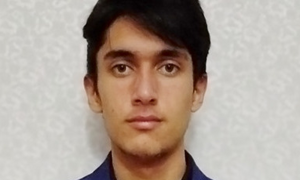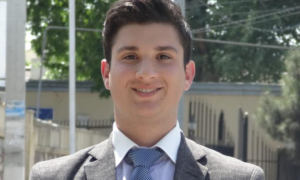After the latest European Court of Human Rights (ECtHR) decisions that Azerbaijan violated freedom of religion and belief, the regime is imposing more restrictions in Religion Law changes. “The decision of the Court alone is not enough for justice,” a lawyer who wished to remain anonymous for fear of state reprisals told Forum 18. “The government’s failure to fulfil its ECtHR obligations is a serious issue,” says another lawyer, Asabali Mustafayev. “The Council of Europe and other international organisations are not insistent enough, so the government gets away with flouting [its obligations].”

In decisions issued between April and June, both the United Nations Human Rights Committee and the European Court of Human Rights in Strasbourg (ECtHR) have again instructed the Azerbaijani regime to pay compensation to those whose freedom of religion and belief it had violated. In line with Azerbaijan’s legally-binding international human rights obligations, the decisions of both the Human Rights Committee and the ECtHR require the regime to change its laws and practices so that freedom of religion and belief violations cannot recur.
“The State party is also under an obligation to take all steps necessary to prevent similar violations from occurring in the future, including by reviewing its domestic legislation, regulations and/or practices with a view to ensuring that the rights under article 18 [“Freedom of thought, conscience and religion”] of the Covenant [on Civil and Political Rights] may be fully enjoyed in the State party,” the 26 April UN Human Rights Committee decision (CCPR/C/131/D/2805/2016) declares in wording it has used in earlier similar decisions. The decision echoes the call in the November 2016 Concluding Observations on Azerbaijan’s report to the UN Human Rights Committee (see below).
Similarly, the European Court of Human Rights in Strasbourg (ECtHR) has repeatedly stated that “a judgment in which the Court finds a breach of the [European Convention on Human Rights] or its Protocols imposes on the respondent State a legal obligation not just to pay those concerned the sums awarded by way of just satisfaction, but also to choose, subject to supervision by the Committee of Ministers, the general and/or, if appropriate, individual measures to be adopted in their domestic legal order to put an end to the violation found by the Court and to redress so far as possible the effects” (see below).
Instead, the regime is imposing more restrictions on freedom of religion or belief. Religion Law amendments adopted in Parliament on 4 May – and awaiting presidential signature – would give the State Committee for Work with Religious Organisations a veto over non-Islamic religious communities’ appointment of leaders, and a say in reviewing the appointments of Muslim clerics every five years.
Among other restrictions, only communities with a religious centre (headquarters) – requiring five state-registered communities in different locations – would be allowed to apply to have foreign citizens as religious leaders, establish religious educational establishments, or organise visits by their adherents abroad (see below).
The Religion Law changes do not remove any of the restrictions which led to the violations found by the UN Human Rights Committee or ECtHR (see below).
A lawyer in Azerbaijan who wished to remain anonymous for fear of state reprisals is among those who think the Council of Europe – of which the ECtHR is a part – must do more to ensure that the regime fulfils its obligations following judgements that it has violated human rights. “The Council of Europe must launch enforcement mechanisms, as the decision of the court alone is not enough for justice. Only the court decision together with an enforcement mechanism can be fair”, he told Forum 18 on 15 June (see below).
Another lawyer who has taken freedom of religion or belief cases to the ECtHR agrees. “Demands on the government from outside are too weak,” Asabali Mustafayev told Forum 18 on 15 June. “The Council of Europe and other international organisations are not insistent enough, so the government gets away with flouting [its obligations]” (see below).
In a decision made public on 26 April, the United Nations (UN) Human Rights Committee found that “by arresting, detaining, convicting and fining [six Jehovah’s Witnesses in 2013] for possessing religious literature and holding a peaceful religious service in a private home, the State party [Azerbaijan] violated their rights under article 18 (1) [“Freedom of thought, conscience and religion”] of the [International Covenant on Civil and Political Rights]”.
The Committee ruled that Azerbaijan had violated the Jehovah’s Witnesses’ rights, ordered an “effective remedy” for each (including reimbursement of the large fines handed down on five of them and any court fees) and instructed the regime to amend laws and practice to avoid future violations (see below).
Jehovah’s Witnesses from Azerbaijan have six other freedom of religion or belief cases pending with the UN Human Rights Committee (see below).
Meanwhile, the European Court of Human Rights (ECtHR) issued decisions in May and June 2021 finding that Azerbaijan had violated human rights in eight freedom of religion or belief cases, and ordering that the victims be paid compensation and costs. Nine known freedom of religion and belief cases remain before the ECtHR (see forthcoming F18News article).
“Taking individual action .. so as not to have to change legislation and practice”
In December 2020, the ECtHR found that the regime had violated Shukran Mammadov’s rights (Application No. 7308/12) and ordered that the government pay him compensation. The government has paid the compensation, but Mammadov is still unable to get back religious books seized from him, his lawyer Mustafayev complained to Forum 18.
Mammadov had legally bought the more than 100 books – from Muslim theologian Said Nursi’s “Risale-i Nur” collection – in a bookshop in Baku. Police seized the books in a raid on his home in Ujar in July 2007 and handed them to the State Committee for censorship. The State Committee has given varying opinions of Nursi’s works over the years, at times banning them and others declaring that individuals can import limited quantities.
Mammadov unsuccessfully brought legal challenges to recover his books, but ultimately lost his case at the Supreme Court in August 2012. He revived his attempt to get them back after the ECtHR decision in December 2020.
“Shukran wrote to the government about the books, but there was no response,” lawyer Mustafayev noted. The Justice Ministry’s Chief Bailiff’s Department telephoned Mammadov in Spring 2021 asking for copies of local court and ECtHR decisions. “We had a feeling they were ready to resolve this, but there has been no action since. They didn’t say where the books are being held – maybe they’ve been destroyed.”
In early June, Mammadov wrote to Chingiz Asgarov, the government’s representative to the ECtHR, but has again received no response. Lawyer Mustafayev told Forum 18 that Mammadov plans to write to the Committee of Ministers of the Council of Europe if the government fails to hand back his books.
The telephone of Ilqar Jafarov, head of the Justice Ministry’s Chief Bailiff’s Department, went unanswered each time Forum 18 called on 15 June.
Religion Law amendments ignore legally-binding UN and ECtHR requirements
The 26 April 2021 UN Human Rights Committee decision (CCPR/C/131/D/2805/2016) in the case of six Jehovah’s Witnesses (see below) is clear about Azerbaijan’s obligation.
“The State party is also under an obligation to take all steps necessary to prevent similar violations from occurring in the future, including by reviewing its domestic legislation, regulations and/or practices with a view to ensuring that the rights under article 18 of the Covenant may be fully enjoyed in the State party,” the decision declares in wording it has used in earlier similar decisions. It also instructed Azerbaijan to inform it of steps it would take within 180 days.
As well as echoing legally-binding ECtHR requirements, the UN Human Rights Committee decision also echoes the call in the November 2016 Concluding Observations on Azerbaijan’s report to the UN Human Rights Committee (CCPR/C/AZE/CO/4), that Azerbaijan “should bring its legislation, including the law on freedom of religious belief, into conformity with article 18 of the Covenant”.
Eldar Zeynalov of the Human Rights Centre of Azerbaijan notes that, following ECtHR judgments against it, the regime “usually confines itself to taking individual action on specific complaints so as not to have to change legislation and practice as a whole”.
“It is easier a couple of times a year to buy off those few complainants who manage to get to the European Court than to change the well-established system that suits the authorities,” Zeynalov told Forum 18 from Baku in March. “And if it is possible to do this without bringing the essence of the problem to public consideration at all, this is ideal for the government. And this is exactly what happens when concluding friendly settlements or when the ECtHR accepts a unilateral declaration from the government.”
After nine ECtHR cases were concluded in September 2020, when the regime admitted it violated freedom of religion or belief and the ECtHR closed the cases, lawyer Khalid Agaliyev made the same point to Forum 18. He noted that, despite many ECtHR judgments against Azerbaijan, “we don’t see any follow-up from these judgments. We want the general human rights situation to change under the influence of these judgments. Unfortunately, this is not happening”.
The ECtHR has repeatedly stated that “a judgment in which the Court finds a breach of the [European Convention on Human Rights] or its Protocols imposes on the respondent State a legal obligation not just to pay those concerned the sums awarded by way of just satisfaction, but also to choose, subject to supervision by the Committee of Ministers, the general and/or, if appropriate, individual measures to be adopted in their domestic legal order to put an end to the violation found by the Court and to redress so far as possible the effects” (see Scozzari and Giunta v. Italy, Application Nos. 39221/98 and 41963/98).
Following the September 2020 ECtHR judgment in the case of Religious Community of Jehovah’s Witnesses v. Azerbaijan (Application No. 12739/13), the victims told the Court in a letter of 9 December 2019 that “the issues raised .. have not been determined by the Court in previous cases against the respondent Government and that the Government’s unilateral declaration did not address the problems underlying the alleged violations of the [European Convention on Human Rights]”.
Asabali Mustafayev, the lawyer who represented seven Muslims whose cases were decided on 3 September 2020, told Forum 18 that they had tried “to have the government commit to its obligations to take general measures that such violations could not recur in future. But here the government has simply admitted a violation but has not taken any obligation on itself”.
Following the May and June 2021 ECtHR decisions, Mustafayev noted that on many cases the government fails to fulfil its obligations. He repeated his regret at the government’s failure to change laws and practices to prevent new violations.
“The government’s failure to fulfil its ECtHR obligations is a serious issue for Azerbaijan,” Mustafayev told Forum 18 on 15 June. “Demands on the government from outside are too weak. The Council of Europe and other international organisations are not insistent enough, so the government gets away with flouting [its obligations].”
Another lawyer in Azerbaijan was equally pessimistic. “At present, the government offers only compensation for the decisions of the European Court of Human Rights,” the lawyer – who asked not to be identified for fear of state reprisals – told Forum 18 on 15 June. “This is the case in all decisions and is a common policy. The Council of Europe must launch enforcement mechanisms, as the decision of the court alone is not enough for justice. Only the court decision together with an enforcement mechanism can be fair.”
Enhanced supervision
In three cases in which the ECtHR found in 2020 that Azerbaijan had violated the right to freedom of religion or belief and inter-related rights, the Council of Europe is conducting “enhanced supervision” of the implementation of these decisions. “An enhanced procedure is used for cases requiring urgent individual measures or revealing important structural problems,” it explains.
These cases related to the lack of a civilian alternative to military service (which Azerbaijan promised the Council of Europe it would introduce by January 2003), the ban on all exercise of freedom of religion and belief outside a state-registered religious community’s address, and compulsory prior state censorship of religious texts.
ECtHR cases on which Council of Europe is conducting “enhanced supervision” require states to submit Action Plans or Action Reports. Azerbaijan does not appear to have submitted any such documents to the Council of Europe in any cases since September 2019.
ECtHR judgment, compensation, but no return of books
In December 2020, the ECtHR found that the regime had violated Shukran Mammadov’s rights (Application No. 7308/12) and ordered that the government pay him compensation. The government has paid the compensation, but Mammadov is still unable to get back religious books seized from him, his lawyer Mustafayev complained to Forum 18.
Mammadov had legally bought the more than 100 books – from Muslim theologian Said Nursi’s “Risale-i Nur” collection – in a bookshop in Baku. Police seized the books in a raid on his home in Ujar in July 2007 and handed them to the State Committee for censorship. The State Committee has given varying opinions of Nursi’s works over the years, at times banning them and others declaring that individuals can import limited quantities.
Mammadov unsuccessfully brought legal challenges to recover his books, but ultimately lost his case at the Supreme Court in August 2012. He revived his attempt to get them back after the ECtHR decision in December 2020.
“Shukran wrote to the government about the books, but there was no response,” lawyer Mustafayev noted. The Justice Ministry’s Chief Bailiff’s Department telephoned Mammadov in Spring 2021 asking for copies of local court and ECtHR decisions. “We had a feeling they were ready to resolve this, but there has been no action since. They didn’t say where the books are being held – maybe they’ve been destroyed.”
In early June, Mammadov wrote to Chingiz Asgarov, the government’s representative to the ECtHR, but has again received no response. Lawyer Mustafayev told Forum 18 that Mammadov plans to write to the Committee of Ministers of the Council of Europe if the government fails to hand back his books.
The telephone of Ilqar Jafarov, head of the Justice Ministry’s Chief Bailiff’s Department, went unanswered each time Forum 18 called on 15 June.
Religion Law amendments ignore legally-binding UN and ECtHR requirements
The 26 April 2021 UN Human Rights Committee decision (CCPR/C/131/D/2805/2016) in the case of six Jehovah’s Witnesses (see below) is clear about Azerbaijan’s obligation.
“The State party is also under an obligation to take all steps necessary to prevent similar violations from occurring in the future, including by reviewing its domestic legislation, regulations and/or practices with a view to ensuring that the rights under article 18 of the Covenant may be fully enjoyed in the State party,” the decision declares in wording it has used in earlier similar decisions. It also instructed Azerbaijan to inform it of steps it would take within 180 days.
As well as echoing legally-binding ECtHR requirements, the UN Human Rights Committee decision also echoes the call in the November 2016 Concluding Observations on Azerbaijan’s report to the UN Human Rights Committee (CCPR/C/AZE/CO/4), that Azerbaijan “should bring its legislation, including the law on freedom of religious belief, into conformity with article 18 of the Covenant”.
Instead, the regime is imposing more restrictions on freedom of religion or belief.
If signed into law, the Religion Law amendments adopted in Parliament on 4 May 2021 – and awaiting presidential signature – would introduce a new requirement for the State Committee for Work with Religious Organisations to approve the appointment of all non-Islamic religious leaders. Only the Caucasian Muslim Board would be allowed to name Muslim clerics, but they would have to undergo re-attestation every five years with the involvement of State Committee officials.
The Religion Law amendments would close mosques and Islamic shrines when they do not have a state-controlled Muslim Board-appointed leader. They would allow non-Islamic communities to establish and apply for state registration of a religious centre (headquarters), but only if they have at least five registered communities in at least five different towns or districts. Most non-Islamic communities would struggle to achieve this.
Non-Islamic communities without a “religious centre” would not be allowed to grant religious titles or ranks to the clergy, and would have to apply for permission to have foreign citizens as religious leaders, establish religious educational establishments, or organise visits by their adherents to shrines and religious locations abroad. Tighter restrictions would be imposed on mass religious events outdoors.
The Religion Law changes do not remove any of the restrictions which led to the violations found by the UN Human Rights Committee or ECtHR. Instead, the changes add more restrictions which break the regime’s legally-binding international human rights obligations.
No plans to change law or practice to comply with binding legal obligations?
The Presidential Administration prepared amendments to the Religion Law in secret and handed them to parliament, the Milli Majlis, apparently in early April. The draft amendments were only published on the Milli Majlis website in the afternoon of 21 April, two days before their first reading.
The Milli Majlis approved the Religion Law amendments – and corresponding amendments to the Administrative Code – in the first reading on 23 April, the second reading on 27 April and the final, third reading on 4 May. It appears the text was unchanged in parliament.
The Religion Law and Administrative Code amendments were then sent to President Ilham Aliyev to be signed into law. He has 56 days in which to sign or return any Law to the Milli Majlis.
Forum 18 has been unable to find out if the regime has any plans to change its law or practice to comply with its binding legal obligations outlined by the UN Human Rights Committee and the ECtHR in Strasbourg. Telephones at government offices were not answered on 14 June.
The telephone of Chingiz Asgarov, the Deputy Chair of the Supreme Court – and the regime’s Agent at the ECtHR – went unanswered each time Forum 18 called on 14 June.
The man who answered the phone of Gunduz Ismayilov, a Deputy Chair at the State Committee for Work with Religious Organisations (which controls all exercise of the right to freedom of religion or belief), told Forum 18 on 14 June that he was on holiday. Other phones at the State Committee went unanswered.
At least 66 cases since January 2001
In the more than 20 years since Azerbaijan joined the Council of Europe in January 2001, individuals and communities until today (15 June 2021) lodged at least 66 cases to the ECtHR in Strasbourg over violations of the right to freedom of religion or belief. Of these, 57 have now concluded at the Court.
The latest eight ECtHR decisions – issued in May and June – leave nine cases from Azerbaijan relating to violations of freedom of religion or belief known to be awaiting an ECtHR decision. Of these cases – submitted between 2012 and 2021 – 4 were lodged by Muslims, 4 by Jehovah’s Witnesses, and 1 by a Protestant (see full list in forthcoming F18News article).
Latest UN Human Rights Committee decision
The United Nations (UN) Human Rights Committee adopted a decision (CCPR/C/131/D/2805/2016) on 25 March 2021 – made public on 26 April – in a case lodged in April 2016 by six Jehovah’s Witnesses, Aziz Aliyev, Jeyhun Aliyev, Vagif Aliyev, Gamar Aliyeva, Havva Aliyeva and Yevdokiya Sobko.
Police – some in uniform and some in plain clothes – raided the home of the Aliyev family in Aliabad in the northern Zakatala District for several hours in September 2013. Officers forced their way into the house, claiming they had received a complaint that family members “preach religion” and store illegal literature. Police insisted on searching the house against the family’s wishes, despite having no search warrant. They seized all the literature they could find, including personal copies of the Bible from family members and their two guests from Baku. They took the names of family members present and their guests.
Police then took all the Jehovah’s Witnesses to the police station. On the way, the mother of the family Havva Aliyeva, suffered an epileptic attack. She and her son were taken to hospital, where she was given an injection and kept until the evening.
The rest of the Jehovah’s Witnesses were held for several hours at the police station in Zakatala, where one police officer insulted them for their religious affiliation. Officers tried to force them to write statements dictated by the police, but the Jehovah’s Witnesses refused. Officers told the detainees that they are terrorists, members of a “dangerous sect”, were traitors to their faith, were “mentally ill”, and should rot in prison.
The six were among eight Jehovah’s Witnesses found guilty at Zakatala District Court of violating the then Administrative Code Article 299.0.2. This punished “violating legislation on holding religious meetings, marches, and other religious ceremonies”. In late November and early December, seven of the eight were each fined 1,500 Manats, estimated at the time to be the equivalent of about a year’s salary for a local state employee, such as a teacher. The court did not fine Havva Aliyeva, but gave her an official warning.
In December 2013 and January 2014, Sheki Appeal Court rejected the appeals by all eight.
In its decision, the UN Committee ruled that “by arresting, detaining, convicting and fining [the six Jehovah’s Witnesses in 2013] for possessing religious literature and holding a peaceful religious service in a private home, the State party violated their rights under article 18 (1) [“Freedom of thought, conscience and religion”] of the [International Covenant on Civil and Political Rights]”.
The Committee ruled that Azerbaijan had violated the Jehovah’s Witnesses’ rights and ordered an “effective remedy” for each (including reimbursement of the large fines handed down on five of them and any court fees). It also instructed the regime to amend laws and practice to avoid future violations (see above).
This is the third decision by the UN Human Rights Committee in Jehovah’s Witness cases finding that Azerbaijan had violated the right to exercise freedom of religion or belief. The cases in October 2020 were Rahima Huseynova v. Azerbaijan; and Saladdin Mammadov, Rashad Niftaliyev and Sadagat Abbasova v. Azerbaijan. In both cases, the Committee ruled that the State had violated their rights, ordered an “effective remedy” for each (including reimbursement of the large fines and any court fees) and instructed Azerbaijan to amend laws and practice to avoid future violations.
The regime has paid compensation to all plaintiffs in recent ECtHR judgments, a Jehovah’s Witness told Forum 18 from Baku on 15 June. “For UN Human Rights Committee decisions, government representatives and lawyers of the complainants are still discussing the amount of compensation and other terms,” the Jehovah’s Witness added. “So, for UN Human Rights Committee decisions, the government hasn’t paid compensation yet but it intends to.”
Jehovah’s Witnesses from Azerbaijan have six other freedom of religion or belief cases pending with the UN Human Rights Committee. Four relate to police raids on meetings for worship and two to speaking to others about faith. {https://www.forum18.org}





